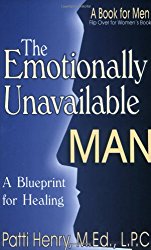How a therapist can utilize the New Warrior Training Adventure: Bill Kauth, Retired Therapist, Co-creator of the New Warrior Training Adventure, Author of A Circle of Men: The Original Manual for Men’s Support Groups
“The therapist… can track their clients closely, and at the precise point when they are ready and open to have a truly transformational experience, to embrace emotional literacy, and trust other people at a level they’ve never imagined … the therapist simply sends them to the New Warrior Training and then works with them when they get back, to integrate that into their lives.”
Download the ManKind Project Brochure for Therapists.
Hundreds of men every year are referred to the New Warrior Training Adventure by licensed mental health professionals.
The New Warrior Training Adventure is a unique opportunity for profound personal growth. Men come seeking support with issues of confidence and self-assurance, manhood and masculinity, isolation, marriage and relationship issues, negative self talk, lack of positive male role models, difficulty finding direction, confronting the past, learning to set boundaries, accountability, male shame … and much more. Each man’s experience of the New Warrior Training Adventure is unique to his needs in whatever life transition he is encountering.
[testimonials_cycle theme=”default_style” category=”therapists” random=’true’ timer=15000 auto_height=’calc’ prev_next=’1′ pause_on_hover=’1′]
 Why is the New Warrior Training Adventure a good step for a ‘walled-off’ man?
Why is the New Warrior Training Adventure a good step for a ‘walled-off’ man?
Patti Henry, LPC on referring men to the New Warrior Training Adventure
 Because of my book, I work daily with emotionally unavailable men, and I, literally, have sent hundreds of men to the NWTA. Why? Because, quite frankly, it makes my job easier. It is a fast and safe way to break through to a man’s walled-off heart, and to soften his resistance to doing emotional work. I also send men to this program because the response I have received from my clients who have gone through it has been overwhelmingly positive. They become better partners, better parents, better men. I think we have done a great job of empowering women in America, but that is not enough. We MUST heal men to heal the world.
Because of my book, I work daily with emotionally unavailable men, and I, literally, have sent hundreds of men to the NWTA. Why? Because, quite frankly, it makes my job easier. It is a fast and safe way to break through to a man’s walled-off heart, and to soften his resistance to doing emotional work. I also send men to this program because the response I have received from my clients who have gone through it has been overwhelmingly positive. They become better partners, better parents, better men. I think we have done a great job of empowering women in America, but that is not enough. We MUST heal men to heal the world.
~ Patti Henry, M.Ed., L.P.C., Author; The Emotionally Unavailable Man: A Blueprint for Healing
“If I had a magic wand, I would give this gift to every man alive. It is a life changing experience. ManKind invites men to look deep and to be and live out of their core – in other words to be and live who they really are, not what society, their families, and others think they “should“ be. ManKind supports men afterward through rewarding and authentic relationships with other men. Relationships with loved ones are transformed as well!”
Evidence Based Results: Peer Reviewed Research
Between 2006 and 2010, the ManKind Project engaged a research team to conduct a longitudinal study on the impact of the NWTA on participating men. Men were surveyed on standard measures for Depression, Conflict between Work and Family, Life Satisfaction, Restrictive Affectionate Behavior Between Men, Restrictive Emotionality, Success Power and Conflict, Social Support, and Values/Ideology/Growth, prior to participation and one week, six months, approx. one year, and two years afterward. The results revealed significant changes in men’s attitudes and behaviors more than a year after the training program.
Ryan Stanga, one of the researchers who worked on the study said,
“In short, one year after attending the NWTA, attendees consistently reported improved scores on measures of Depression, Conflict between Work and Family, Life Satisfaction, MKP Beliefs/Ideology/Growth, Restrictive Affectionate Behavior Between Men, and Restrictive Emotionality as compared to their reported scores before the NWTA. These same improvements were maintained when the same scales were measured two-years after attending the NWTA. Each of those scales are described in the paper.”
“What it means is that we can say with some increased confidence that what the ManKind Project does on their training weekends is meaningful and has impact. This is not just anecdotal or our impression, but is confirmed by data.”
Peer-reviewed findings from this research was published in “The American Journal of Community Psychology” (Volume 45, Numbers 1-2, 186-200) and the “Journal of Self-Help and Self Care” (Vol 8, No. 1).
Existing research and survey data has enabled us to adapt our curriculum to better serve a more diverse population, to refine our protocols for relevance over time, and to customize our follow-up efforts to provide effective integration for men after attending the New Warrior Training Adventure.
Our purpose as an organization is to create a world where men take individual and collective responsibility for our shared future by initiating and supporting them on a path of emotional maturity, spiritual awareness and deepening community. Self-awareness, increased connection and compassion, emotional intelligence, accountability, and purpose are key to this mission.
Bibliography:
1. Borkman, T (2014). Editor’s Note. International Journal of Self Help & Self Care, Vol. 8, No. 1. pp 1 – 3.
2. Barton, E. R. (2014) Reframing Masculinity in a Men’s Mutual Help Organization, The ManKind Project: An
Introduction to Experience Reports, International Journal of Self Help & Self Care, Vol. 8, No. 1. pp. 5 – 9.
3. Mankowski, E. S. (2014). Collaborative Research in a Mutual Help Organization for Men: Addressing Masculinities: Cross Cutting Issues and Themes. International Journal of Self Help & Self Care, Vol. 8, No. 1. pp. 33 – 40.
4. Mankowski, E. S., Maton, K. I., Burke, C. K., & Stephan, S. H. (2014). Group Formation, Participant Retention, and Group Disbandment in a Men’s Mutual Help Organization, International Journal of Self Help & Self Care, Vol. 8, No. 1. pp. 41 – 60.
5. Anderson, C. L., Maton, K. I., Burke, C. K., Mankowski, E. S., & Stapleton, L. M. (2014). Changes in Conventional Masculinity and Psychological Well-Being Among Participants in a Mutual Help Organization for Men, International Journal of Self Help & Self Care, Vol. 8, No. 1. pp. 61 – 84.
6. Maton,. K. I., Mankowski, E. S., Anderson, C. L., Barton, E. R., Karp, D. R., & Ratjen, B. (2014). Long-Term Changes Among Participants in a Men’s Mutual Help Organization, International Journal of Self Help & Self Care, Vol. 8, No. 1. pp.85 – 112.
7. Burke, C. K., Maton, K. I., Mankowski, E. S., and Anderson, C. L. (2014). Healing Men and Community: Predictors of Outcome in a Men’s Initiatory and Support Organization, American Journal of Community Psychology, published on line 22 Jan, 2014.
8.Mankowski, E. S., Maton, K.I, Burke, C. K., Hoover, S. A., and Anderson, C. W. (2000). Collaborative Research with a Men’s Organization: Psychological, Impact, Functioning, and Organizational Growth. In E. R. Barton (Ed.), Mythopoetic Perspectives of Men’s Healing Work: An Anthology for Therapists and Others. Westport, CT: Bergin and Garvey, pp. 184 – 203.
9. Pentz, M. (2000). Heuristic and Ethnographic Study of the ManKind Project: Initiating Men into a “New Masculinity” or a Repackaging of Dominant Controlling Patriarchy? In E. R. Barton (Ed.), Mythopoetic Perspectives of Men’s Healing Work: An Anthology for Therapists and Others. Westport, CT: Bergin and Garvey, pp. 204 – 225.
Ed Barton
Research Coordinator ManKind Project International (MKPI)
Past Secretary MKP-USA
Past Centre Elder MKP-Windsor/Detroit
Volunteer Curator, Changing Men Collections
Michigan State University Libraries, E. Lansing, MI
